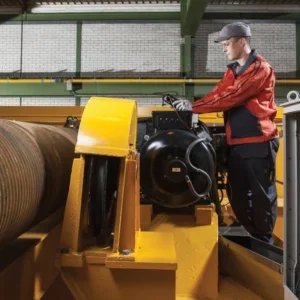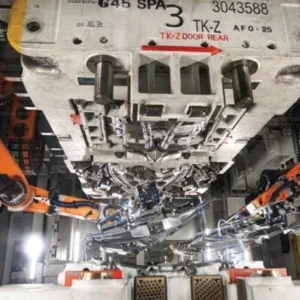The agreement secures a $242m investment that will, among other things, accelerate plans to transform ACT into a sustainable gateway to Jordan, the Levant and further afield.
At a forum following the signing, Keith Svendsen, CEO of APM Terminals, introduced the key aspects of the company’s future vision for the Aqaba port, which include ambitious decarbonisation plans, the modernisation and expansion of ACT, the development of a training centre for individuals working in the maritime and logistics sectors, and ongoing support for Jordan's goal of becoming an export hub for green energy.
“Aqaba is considered one of APM Terminals’ major strategic ports, and an important gateway to the Levant region and beyond,” he said. “To reinforce our long-term commitment to Aqaba and to Jordan’s 2030 Economic Modernisation Vision, we have developed a meticulous plan for enhancing Aqaba’s competitiveness both regionally and globally, including a net-zero emission target for 2040 – the only port in the region with such [a target].”
On-site solar will eliminate the terminal’s carbon footprint and the zero-carbon terminal will become the heart of Aqaba’s future logistics eco system.
The Centre of Excellence for the logistics and maritime industry will play a key role in developing the skills of the sector’s current and future professionals in line with global standards and benchmarks. This will support growth and progress for Jordan and across the Levant. Students enrolled in the centre will have the opportunity to be an integral part of Aqaba’s transformation, allowing members of the local community to take a more active role in these changes.
Jordon’s potential for renewable energy will meet APM Terminals’ commitment to decarbonisation. Danish shipping company Maersk will also support the development of green hydrogen fuel, enabling the country to enhance its position as a producer and exporter of green fuel.






